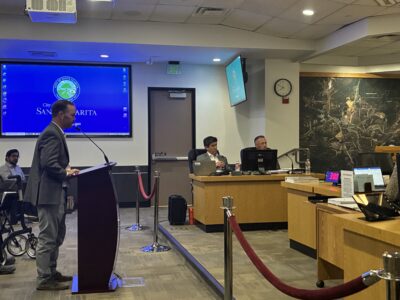By David Hegg
As I am writing this, I am sitting in a very old and magnificent estate in England called Matfen Hall. So far, we’ve traveled to Boston, Norway, Switzerland, and are now in northern England just miles from the Scottish border. This month-long trip has been a combination of vacation and business, and our path has taken us to cities and fields that were, in a very real sense, magnificently ancient. Let’s say they are monuments to those who labored long and hard to build what would last for centuries.
First, we were able to celebrate Independence Day in Boston where the reality of early Colonial life still emanates from the streets and walls dating back to the 1600s. As we watched the fireworks over the St. Charles River from the rooftop garden of our friends’ brownstone apartment, I had a new and quite different July 4th experience. Being where the call to freedom began was a powerful reminder of the courage of our forefathers. They had a persevering passion that even the greatest opposition could not dampen. This began in me a deeper understanding that history matters, and it matters even more as society begins to forget it.
Then, we flew to Norway and once again I was smacked in the face with the reality that our America is an infant compared to the history of Europe. We walked streets a thousand years old, saw buildings and monuments dedicated to courageous men and women who had the grit and grace necessary to build foundations for the generations that would follow. And as my wife and I traveled to the northernmost point in the Arctic Circle accessible to those not in expeditions, we learned the story of those whose quest to reach the North Pole required of them a level of passion and endurance rarely seen in our comfortable convenience-addicted California lifestyle.
Our travels then took us to Montreux and Geneva where, once again, the youth of our homeland was so evident. And, as before, understanding the history of Western Europe from a Swiss perspective taught us so much about the necessity of perseverance, of working long and hard in a cause that was against all odds but essential. Situated in the middle of warring countries, this little bastion of peace remained steadfastly neutral as wars raged all around them.
In England we saw the sights of London, and once again were overwhelmed with the reality of history. A crash course in the monarchy, with its tragedies and triumphs, underscored the theme that had been steadily growing in our minds. Everything that is worth doing will demand continuing despite the opposition and obstacles in the way. We listened to the stories of those willing to be burned at the stake rather than recant their beliefs. We were forced to realize that such determination and faithfulness demanded a strength of character and loyalty to what mattered most to them that is seldom seen in our world.
We made our way north to Yorkshire where the dry rock walls delineated the moors and in so doing testified to the dedication to hard work that was characteristic of those early settlers. Miles and still more miles of rock walls built without mortar and still standing after hundreds of years were proof that in almost every case there is no substitute for hard work, day after day after day.
So, what am I trying to say? Just this. If we are honest, we must admit that the ethic of hard work is slowly slipping away in our culture. We have come to believe that doing things in life should be convenient. Think “there’s an app for that.” We expect there to be an easy way to get hard things done. We have become addicted to convenience, to technological short-cuts, and immediate gratification. And most of all, we’ve been duped into thinking attaining success should be easy.
Yet, what we are leaving out of the equation is the necessity of experience. There are many essential things that cannot be hurried, and experience is primary among them. While it is possible to learn things with artificial intelligence or Google, the most basic elements of ethical living, relationships and character demand trial and error. There is no app for grit, no AI platform for learning how to cultivate civility, and certainly no pill you can take to develop self-control and the habits of righteousness.
Some of the best and most important traits and skills and perspectives along the path of human existence are only recognized, learned and incorporated into our lives over time. They are formed through trial and error, and the opportunity to learn from those who have gone before us. Walking the halls of history with its ancient walls, monuments and reminders of both triumphs and tragedy will remind us that winning at life is not easy, and perseverance through adversity only strengthens the character and opens the doors of opportunity.
We can hurry many things in life. Technology has made so many things easier and faster. But it is still true that experience over time can teach us necessary things and shape our character in essential ways that cannot be hurried. And one of the most important lessons experiences teach is that true success and satisfaction in life will demand a passion to keep going, to strive and labor through all obstacles to both survive and succeed.
Now, please excuse me as we’re heading off to Scotland!
Local resident David Hegg is senior pastor of Grace Baptist Church. “Ethically Speaking” appears Sundays.










